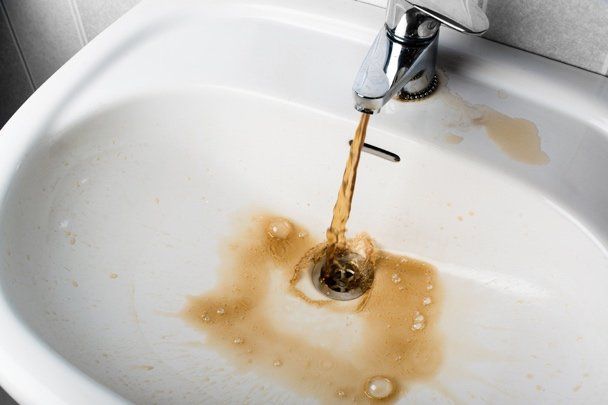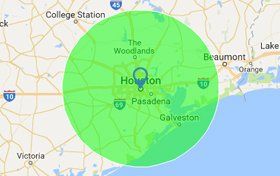Serving The Greater Houston Area
281-320-9547
Water Issues

Water Issues? Say No More…
If you are having issues with your water quality at home or office let PuraFlo solve it. A couple of common water issues include:
- Sulfur or Rotten Egg smell
- Lead in drinking water
- Chlorine taste
- Hard Water
Sulfur or Rotten Egg Smell
Usually, if your water smells like sulfur or rotten eggs, the reason is because your water has high Hydrogen Sulfide (H2S) content.
H2S is a gas that is released from the earth and finds its way into groundwater. It’s especially common in well water located near shale, sandstone, coal, peat, or oil.
(Occasionally, a rotten-egg smell in your water could also be caused by a water heater or by sewage pollution in your water. If you’re on city water, the most likely explanation is your water heater.)
A rotten-egg smell in your water may be strongest right after turning the water on, as heat forces the gas out of the water and into the air
H2S dissolves in water to create a weak acid that can corrode metal pipes

Negative Effects of H2S
In addition to potential health risks, having H2S in your water can cause all sorts of annoying problems. H2S in your water can:
- Cause coffee and tea to be discolored and taste funny
- Corrode metals (steel, copper, iron, brass), including silverware
- Cause foods cooked with water to taste “off”
- Create yellow or black stains in your bathroom and kitchen
How Do You Fix It?
At PuraFlo, you can find everything you need to get rid of H2S and that sulfur/rotten-egg smell from your water.
The first step we have to take is to test your water, so we can be sure of the real cause of the rotten-egg smell.
Fortunately, at PuraFlo we offer this service FREE. One of our water experts will come to your home to test the water (you can’t send it away to a laboratory because H2S is a gas and could dissipate during transport) and let you know the source of your rotten-egg smell. You’re under no obligation whatsoever.
The first step we have to take is to test your water, so we can be sure of the real cause of the rotten-egg smell.
Fortunately, at PuraFlo we offer this service FREE. One of our water experts will come to your home to test the water (you can’t send it away to a laboratory because H2S is a gas and could dissipate during transport) and let you know the source of your rotten-egg smell. You’re under no obligation whatsoever.
Lead in Your Drinking Water

Lead contamination is at the forefront of our mind these days, and it should be.
According to the New York Times:
The Environmental Protection Agency says streams tapped by water utilities serving a third of the population are not yet covered by clean-water laws that limit levels of toxic pollutants.
To make matters worse, “more than 18 million Americans are getting their drinking water from systems that have violated federal lead rules.”
According to a report by CNN, more than 5,000 water systems are in violation for multiple reasons:
- Failure to properly test water
- Failure to report contamination
- Failure to treat water properly
However, with any health crisis, it’s important to know and understand the facts, and fortunately the facts are easy to find with a water test.
If you suspect or are concerned that you have lead present in your water, here’s what to do:
- Get your water tested.
Contact us at PuraFlo and we’ll test your water for FREE.
- If lead is detected, we’ll send your water to our EPA-certified laboratory to test for a more detailed analysis.
- We’ll help you interpret your results, so you can make an educated decision about what to do next.
If you have lead present in your water the best way to treat it is with reverse osmosis. A PuraFlo Reverse Osmosis Drinking Water System reduces lead by 98.7% so you can feel confident in trusting PuraFlo with your family’s drinking water.
If you’re not sure if you should get your water tested, here are a few red flags:
- Appearance
– Water has a brown or red tint or has started staining sinks and fixtures.
- Odor
– Water smells dirty, metallic, or has any noticeable odor.
- Taste
– Water tastes metallic, dirty, or “off” in any way.
Chlorine Smell/Taste
If you smell or taste a hint of chlorine in your water, there is nothing to be afraid of. The EPA actually requires water facilities to treat their water with chlorine before it is dispersed to the community. If you do not like the smell or the taste of chlorine in your water PuraFlo can help! Our Under the Counter Reverse Osmosis Systems
come equipped with a Carbon and Sediment filter that will remove quite a bit of contaminants, including chlorine.
Hard Water
How your home may develop Hard Water:
When water is combined with carbon dioxide to form very weak carbonic acid, an even better solvent results. As water moves through soil and rock, it dissolves very small amounts of minerals and holds them in solution. Calcium and magnesium dissolved in water are the two most common minerals that make water "hard." The degree of hardness becomes greater as the calcium and magnesium content increases and is related to the concentration of multivalent cations dissolved in the water.
Potential Health Effects:
Hard water is not a health hazard. In fact, the National Research Council (National Academy of Sciences) states that hard drinking water generally contributes a small amount toward total calcium and magnesium human dietary needs. They further state that in some instances, where dissolved calcium and magnesium are very high, water could be a major contributor of calcium and magnesium to the diet. However, if you have a hardness problem you may want to check for arsenic. Exposure to arsenic at high levels poses serious health effects as it is a known human carcinogen. In addition, it has been reported to affect the vascular system in humans and has been associated with the development of diabetes.
How to get rid of your home’s Hard Water:
Call Us Today at
281-320-9547
Call today to schedule
a FREE local delivery.
281-320-9547
Trust Houston’s Local Water Experts
We’re here when you need us:
PuraFlo has been treating your water needs in the Greater Houston Area since 1989. Our business is dedicated to making your water better using the best equipment, best service, and best prices around. We are your one-stop-shop for all your water needs!
We’re Family Owned:
Our team works in the local area and we're a family owned and operated business.
Warrantied:
Most PuraFlo equipment comes with a Limited Lifetime Warranty.
About Us
Serving the Greater Houston area since 1990, Pura Flo
can take care of all your water needs.
Between our water quality services, home and office delivery, and custom labeling, we can solve all of your problems with a single call.
We offer FREE estimates and a complete satisfaction guarantee.
Contact Us
Address
Pura Flo
6717 Klein Cemetery Road, Building G
Spring, TX 77379
Phone
281-320-9547
Toll-free
800-414-4377
Fax
281-320-8297
We specialize in high volume orders and have pricing available upon request!
Privacy Policy
| Do Not Share My Information
| Conditions of Use
| Notice and Take Down Policy
| Website Accessibility Policy
© 2025
The content on this website is owned by us and our licensors. Do not copy any content (including images) without our consent.

